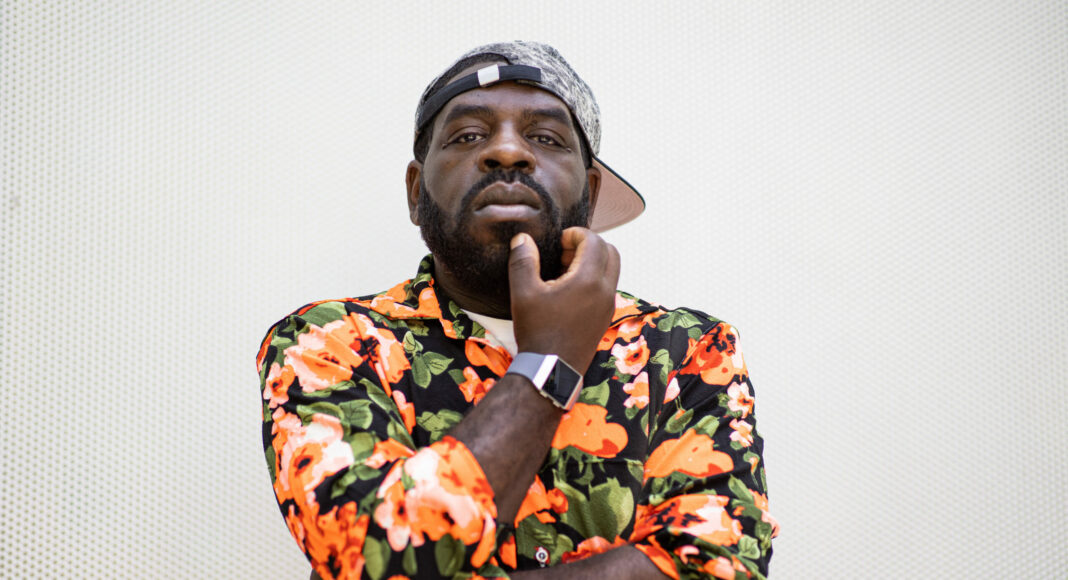Though he now graces conference podiums and university halls, bestselling author Hanif Abdurraqib still loves a good house show.
Abdurraqib’s writings on music flow across form and genre. His 2017 book of essays They Can’t Kill Us Until They Kill Us included astute and poignant musings on Chance The Rapper, Fall Out Boy and Bruce Springsteen among others. 2019’s Go Ahead in the Rain: Notes to A Tribe Called Quest became a New York Times bestseller.
This Thursday, the poet and music writer speaks at Hammer Theatre for Center for Literary Arts, sharing new work in a conversation with Dr. Khalid White, professor at San Jose City College.
As host of the podcast Object of Sound, Abdurraqib has interviewed a range of musicians, from icons like Jack White to current wave-makers like indie-rocker Lucy Dacus and electronic artist Yaeji. In the episode featuring the latter, titled “Anger Is My Friend,” the two talk about embracing rage as a channel for protecting and loving past selves.
“I’m always looking for the story within the story, and that leads me to ask questions about what’s beyond the surface—something other than ‘what inspired you.’ That’s not the actual question,” Abdurraqib says. “The actual question is how are you impacted by the world and how do you respond to that impact with the act of making—how does making influence survival?”
One particularly notable subject for Abdurraqib was Carly Rae Jepsen, who also features in an essay in They Can’t Kill Us Until They Kill Us. Though he went into the interview knowing he wanted to talk about loneliness, he still came away affected by his subject’s responses.
“I did that interview in October and I’ve been thinking about it ever since,” he says.
Though he had already covered multiple Jepsen shows, the singer’s words in his interview found their way into seemingly unrelated work. Interviews and the poetic process become linked. In a way, the writer states, the interview is a type of creative workshop itself. Any conversation has the potential to be a part of the writing process, just from the way we percolate and build ideas off one another.
As a poet whose work involves finding connection and safety in others, Abdurraqib remains indebted to community arts spaces.
“So this thing happened, right. I still say ‘this thing happened’ because I feel uncomfortable talking about it. After winning the MacArthur….” he pauses, laughing at his own awkwardness (Abdurraqib received the MacArthur Genius Grant in 2021).
“I don’t read a lot about myself, but I read something that said I was one of the handful of writers in the country who could read anywhere I wanted to. And I was like ‘well if that’s true, what I most want to do is read in the kinds of places I came up in: house shows and poetry slams and small bookstores.’”
Born and raised in Columbus, Ohio (a city the author reps very proudly), Abdurraqib spent his teen years in basements and mosh pits. While he doesn’t shy away from honest recollection on the racism and sexism in music scenes (such as in the essay “I Wasn’t Brought Here, I Was Born: Surviving Punk Long Enough to Find Afropunk”), the writer displays a deep and enduring love for DIY music and poetry.
“The DIY and punk communities I grew up in defined my ethos as far as how I physically read words out loud from the page, but also how I care about people,” he says. “Community is not a flimsy word. If that’s something you stand on, you need to do it in a way that uplifts people, and that doesn’t leave people behind. I ask myself ‘who is being left behind?’ and I want the answer to be no one. It’s the small things, like reading a house show and staying after to put the chairs away.”
Following 2021’s A Little Devil In America (a finalist for the National Book Award), Abdurraqib is writing new poems but says he “may not write a book of poetry ever again.” Funny enough, his confidence in this point comes from the same source as his creative fuel: his loved ones.
“Community operates outside of production. Community for me is the people I know would love me if I never wrote anything again.”
Thu, 7pm, Free
Hammer Theatre, San Jose



